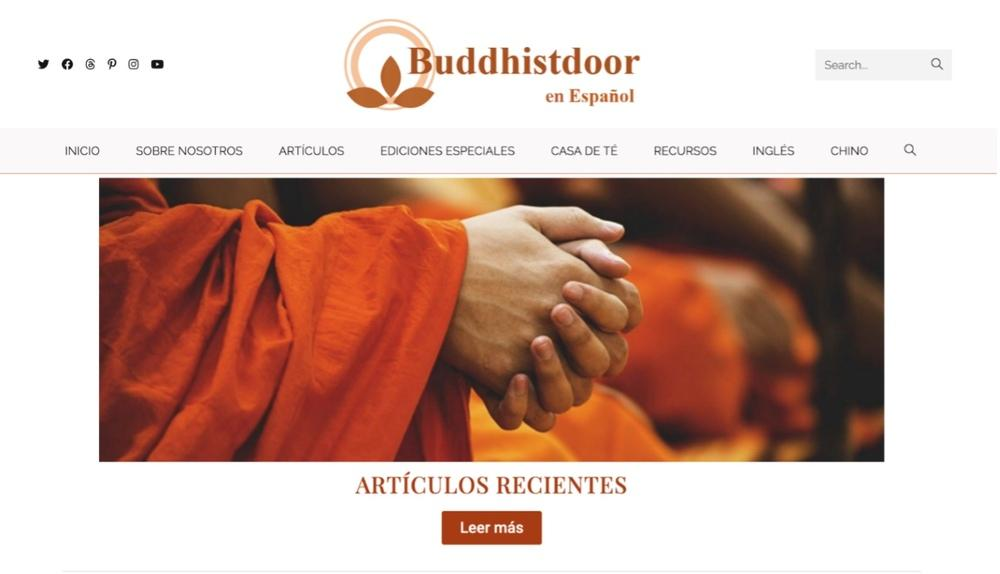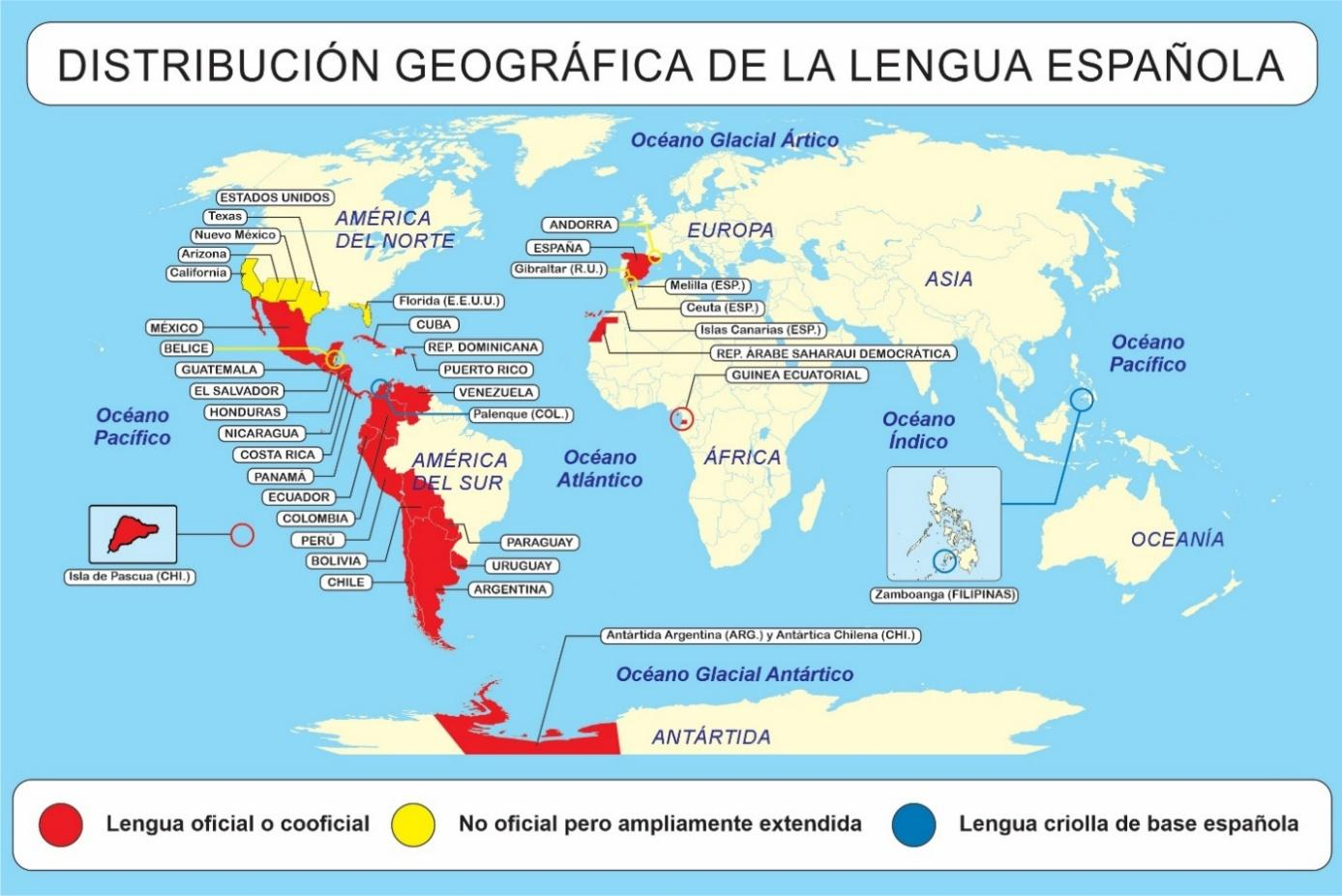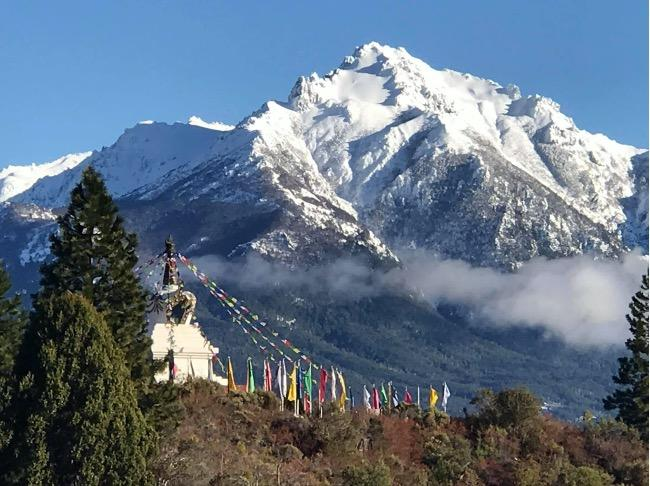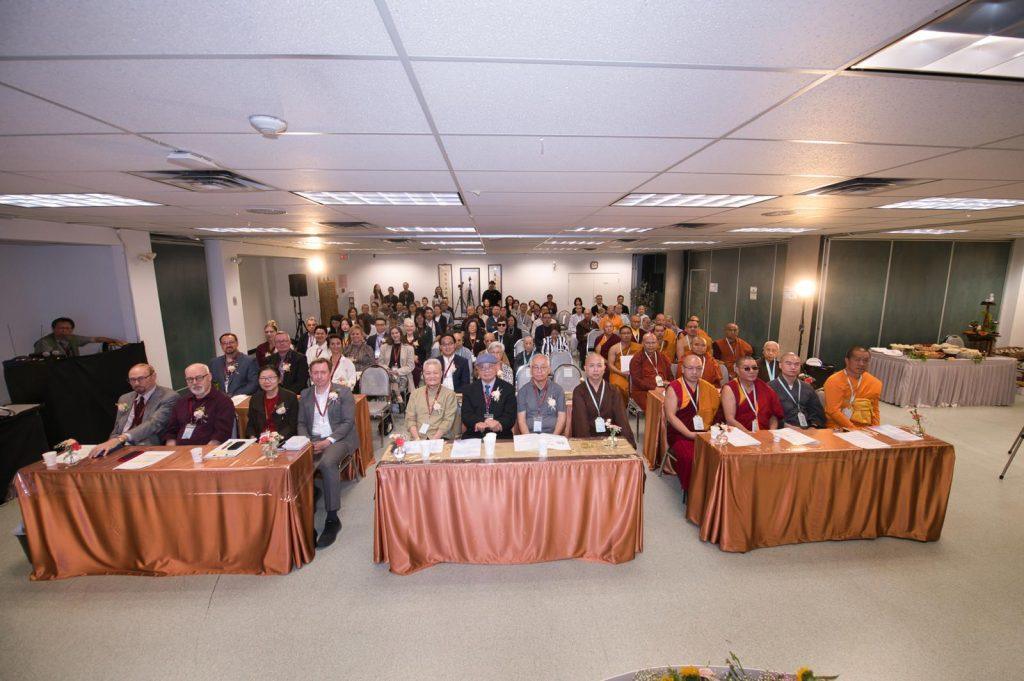The following is the text of the author's intervention, entitled 'The impact of Buddhistdoor in Spanish on the dissemination of Buddhism among Spanish-speaking communities in the digital age', held within the framework of the Symposium on the occasion of the 30th anniversary of Buddhistdoor Global, held in Vancouver, Canada, on September 3 and 4, 2025.
It's an honor to be here today to reflect on a topic that not only connects cultures, but also transforms lives: the impact of Buddhistdoor in Spanish (BDE) on the spread of Buddhism among Spanish-speaking communities in the digital age. In a world where technology allows us to overcome linguistic and cultural barriers like never before, BDE has taken on the challenge of bringing the wisdom of Buddhism closer and adapting it to the needs of the Spanish-American community, thus encouraging its integration into everyday life.

Spanish as a global bridge
Before analyzing the impact of BDE, it is worth highlighting the importance of Spanish as an international language. Although English predominates as a reference language in many contexts, Spanish carries a notable weight due to its reach and influence. According to Ethnologue, it is the second language with the most native speakers in the world, with 484 million. If you add up those who speak it as a second language, it reaches 558 million, approximately 7% of the world's population.
Spanish covers 21 countries and territories, and encompasses landscapes as diverse as the Andes, the Castilian plateau, the Argentine pampas and the Caribbean islands. What really sets it apart is not only its wide distribution, but its remarkable uniformity, which allows speakers to communicate clearly and effectively. Unlike other languages with more marked variations, Spanish has maintained great coherence in structures and expressions, creating a link that transcends borders. More than a means of communication, Spanish is a cultural bridge and a symbol of shared identity that connects millions of people in a global community.

In addition, projections indicate that the Spanish-speaking population will continue to grow steadily in the coming decades, further reinforcing the influence of the language. This reality offers especially fertile ground for spreading Buddhist teachings through an interconnected and expanding community.

Buddhistdoor in Spanish: a single platform
In the vast Spanish-speaking world, there is a small but vibrant Buddhist community—between 0.1 and 0.5% of the population—that yearns to access authentic teachings and quality resources in their language. In response, BDE has established itself as the only international platform for Buddhism in Spanish, dedicated to offering reliable teachings adapted to this audience.
For a long time, access to authentic Buddhist teachings in Spanish was very limited. Although translations existed, the richness and diversity of Buddhist traditions was often lost or remained inaccessible to Spanish-speaking audiences. Much of the material, whether academic or informative, was only available in English, other modern languages or in the original languages of Buddhism, such as Pali, Tibetan or Sanskrit, which created language barriers for those who wanted to approach the Dharma.
The causes of this situation are profound. Spanish colonization established Catholicism as the predominant religion in Latin America, which shaped a cultural and spiritual identity that left little space for other traditions. In addition, with the exception of the Philippines, Spain did not colonize Asia, which limited its contact with regions where Buddhism flourished. These circumstances kept Buddhism in a marginal position for centuries.
Paradoxically, the same factors that once restricted its growth today make it fertile ground for its dissemination. Globalization, the democratization of many countries, the rise of digital connectivity and interest in Eastern philosophies have created an environment conducive to Buddhism taking root.
In a context where modern Spanish speakers seek spiritual and philosophical answers to contemporary challenges beyond conventional religious paradigms, Buddhism flourishes in regions where its presence was historically limited. This makes the Spanish-speaking world a receptive terrain for the expansion and adaptation of Buddhism, and forges a relevant presence in the Spanish-speaking cultural environment.
It is in this context that Buddhistdoor in Spanish has assumed a crucial role. Since its launch in 2019, BDE has established itself as the only global platform for Buddhism in Spanish dedicated to offering reliable, rigorous and culturally relevant teachings. Responding to the historic lack of content in Spanish, it has become an indispensable resource for the dissemination of Dharma among Spanish speakers around the world.
With accurate materials connected to Hispanic culture, BDE offers content that resonates with the experiences of the Spanish-speaking community. Its global and accessible nature positions it as an essential tool for those who want to explore Buddhism from a Hispanic perspective and adapted to contemporary challenges.
The platform embraces the diversity of Buddhist traditions—Zen, Tibetan, Theravada, and modern reformulations—allowing readers to explore different perspectives and styles of practice to find the one that best fits their needs.
Beyond its focus on Buddhist traditions, the platform stands out for the variety of topics it addresses. Its content extends beyond doctrinal and spiritual aspects, and explores the intersection of Buddhism with the entire spectrum of human experience, including art, literature, film, ecology and gender issues. Buddhist perspectives on contemporary issues allow readers to connect Dharma with relevant aspects of their daily lives.
BDE has a team of forty editors from sixteen countries. This reflects their international character and their commitment to cultural diversity. The team includes monastics, lay teachers, academics and journalists. This network of collaborators provides a multiplicity of perspectives and experiences that enrich the platform. They ensure that Buddhist teachings are not only accurately represented, but are also culturally relevant and accessible to the wide and multicultural audience of BDE.
Since its creation, BDE has published more than 900 articles and 130 videos and podcasts on a wide variety of topics: interviews with teachers, Dharma talks, reviews, chronicles, community profiles and analysis of classical and literary texts. As a result of these publications, many people have written to tell us that, after reading our articles, they have searched for Buddhist centers in their countries or have found motivation to start their practice.
A particularly inspiring case is that of Cuba, where a Buddhist community has been formed largely thanks to the platform. People who previously did not have access to Dharma have found in BDE a space for learning and connecting, and they have created study groups that today flourish in an environment with a scarce Buddhist presence.
We have also published special editions on Buddhist education in Latin America and Spain, women and Buddhism, ecology and climate change, Ibero-American literature, cinema, the situation of Buddhism in different countries and Chinese Buddhism. These initiatives enrich the understanding of tradition and make it more relevant to Spanish-speaking communities.
BDE is distinguished by balancing outreach with academic rigor. This approach enriches practitioners' knowledge and raises the level of discourse on Buddhism in the Hispanic world, encouraging a deeper and more critical study.

Harnessing the Digital Age for Global Reach
The reference to “the digital age” in the title of the speech is not a mere addition: it is essential to understand the impact of BDE. The Internet has made it possible to overcome geographical limitations and reach a global audience. Through its website, social networks, newsletters and multimedia materials, BDE has made Dharma accessible to Spanish speakers around the world.
Digital platform metrics reflect the growing reach of BDE among the Spanish-speaking audience and confirm both the increased interest in Dharma and the platform's success in offering relevant and accessible content. The global reach of BDE has democratized Buddhist knowledge in an unprecedented way. A person in Buenos Aires can read an article written by a monk in Madrid, while a student in Mexico City can access the translation of a sutra previously available only in specialized libraries. In addition, writers from the platform have collaborated on innovative books on Buddhist studies, now accessible in Spanish.
The interactive nature of BDE has favored the creation of online communities, such as groups on Facebook and WhatsApp —including those in Cuba— and pages such as Buddhistdoor supporters in Spanish. These spaces allow practitioners to exchange ideas, to feel part of a global movement and to overcome the isolation they often experience in regions with a scarce Buddhist presence.
We have also collaborated with study groups such as the Ibero-American Network for Buddhist Studies (RIEB) in Argentina; with ecological initiatives such as the EcoBuddhism Laboratory in Chile; with the Buddhist Film Festival of Catalonia and with universities and centers for interreligious dialogue. These alliances have generated content of great value for our audience.
Impact on the Spanish-speaking community
As a cultural phenomenon, the platform's impact is perceived on multiple levels within Spanish-speaking Buddhist groups and individuals. For beginners, it offers a solid and reliable introduction to Buddhism, helping them to distinguish between authentic teachings and misinterpretations. For the most experienced practitioners, it is a source of inspiration, deep learning and connection to the global Buddhist community.
Researchers rely on BDE as a valuable resource for their studies, a platform for sharing their findings, and a forum for intellectual exchange. Beyond the Buddhist sphere, it plays a crucial role in demystifying Buddhism for the general public, presenting it as relevant to addressing modern challenges.
Future Challenges and Opportunities
The trajectory of BDE reflects their commitment to the dissemination of Dharma, but the future will bring new challenges. The magazine must keep up with changes and offer fresh content, adapted to the interests of new generations and in innovative formats. Bringing Buddhism closer to young people is a priority task that requires proposals that resonate with their perspectives and interests and respond to the challenges they face.
Another key challenge is maintaining the balance between accessibility and depth. In a world of rapid consumption of information, BDE must continue to offer attractive and current content without losing fidelity to the richness and complexity of Buddhist traditions.
Despite these challenges, BDE's track record demonstrates an exceptional ability to overcome them with creativity and vision. Their commitment to the Spanish-speaking community and their ability to build bridges between cultures ensure that their impact will continue to grow in the coming years.
Conclusion
BDE has become an indispensable platform for sharing and disseminating Buddhist teachings, and it contributes decisively to the growth and understanding of Buddhism in the Spanish-speaking world. By transmitting Dharma in a clear and meaningful way, it builds bridges between cultures, strengthens the Buddhist community and transforms lives.
By nourishing this space of learning and connection, it preserves the essence of Buddhist teachings and lays the foundation for future growth, ensuring that new generations can interact with the Dharma in a transformative way. Ongoing support and resources will be critical to scaling up this work and its positive impact.
The influence of BDE in the dissemination of Buddhism, it has been decisive and is well positioned to continue its development and ensure that the light of Dharma continues to illuminate the Spanish-speaking audience.
* https://www.ethnologue.com/insights/ethnologue200/
*This article has been published simultaneously on the website of Buddhistdoor in Spanish.
——————————————————————————
Daniel Millet Gil has a law degree from the Autonomous University of Barcelona and has a master's degree and a doctorate in Buddhist Studies from the Center for Buddhist Studies of the University of Hong Kong. He received the Tung Lin Kok Yuen Award for Excellence in Buddhist Studies (2019). He is a regular editor and author of the web platform. Buddhistdoor in Spanish, as well as founder and president of the Dharma-Gaia Foundation (FDG), a non-profit organization dedicated to the academic teaching and dissemination of Buddhism in Spanish-speaking countries. This foundation promotes and sponsors the Catalan Buddhist Film Festival. In addition, Millet serves as co-director of the Buddhist Studies program at the Fundació Universitat Rovira i Virgili (FURV), a joint initiative between the FDG and the FURV. In the editorial field, he manages both Editorial Dharma-Gaia and Editorial Unalome. He has published numerous articles and essays in academic and popular journals, which are available in his Academia.edu profile: https://hku-hk.academia.edu/DanielMillet.










